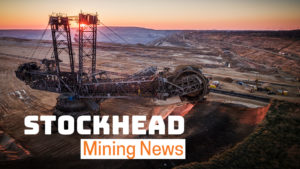Good news for nickel; cobalt not so much as China battery giant reveals plans

Pic: Bloomberg Creative / Bloomberg Creative Photos via Getty Images
China’s biggest lithium battery maker has announced it will need less cobalt next year — though it will increase its use of nickel.
The announcement follows news earlier this year that electric car maker Tesla and its battery supplier Panasonic want to phase out the use of cobalt completely in their products – though many industry watchers don’t believe this can be done because of cobalt’s crucial role in stopping batteries from blowing up.
The $150 billion Contemporary Amperex Technology Ltd (CATL) plans to switch to a chemistry make-up of 80 per cent nickel, 10 per cent cobalt and 10 per cent manganese – also known as NCM811, according to a Reuters report.
More nickel makes batteries cheaper and longer lasting because it can store and produce more energy.
There is a growing push by electric car and battery makers to shift away from cobalt to a cheaper and more readily available material.
- Subscribe to our daily newsletter
- Bookmark this link for small cap news
- Join our small cap Facebook group
- Follow us on Facebook or Twitter
Cobalt is one of the more expensive components of a lithium-ion battery.
It is also plagued with supply issues given 60 per cent comes from the Congo, which has been black-listed by some end-users over ethical issues such as the use of child labour to mine the commodity.
Some 98 per cent of the world’s cobalt is also the by-product of nickel and copper production – meaning there isn’t a great deal of primary production to help meet demand.
>> BARRY FITZGERALD: Should you ‘buy the dip’ in cobalt stocks?
>> NICKEL GUIDE: The price of nickel could double as demand grows
This has prompted a number of battery makers to at least look at reducing the amount of cobalt they use.
At the moment CATL produces batteries containing 50 per cent nickel, 20 per cent cobalt and 30 per cent manganese.
CATL supplies batteries to electric car makers SAIC Motor Corp, Geely, BMW and Volkswagen.
Battery makers take a shine to Aussie nickel explorers
Xu Jinfu, the chairman and a major shareholder of Guangzhou Tinci Materials Technology – one of the largest lithium-ion battery electrolyte manufacturers in China – last week became a cornerstone investor in nickel explorer Cassini Resources (ASX:CZI).
Other high net worth Asian investors with a history of successful development, off-take and financing of battery minerals assets also joined the company’s register.
Investment bank UBS believes electric cars could offer a “renaissance for the nickel market”.
Electric vehicle demand currently only accounts for about 3 per cent of nickel usage, or 70,000 tonnes.
UBS said in June that electric car battery manufacturing could drive incremental nickel demand up by as much as 40 per cent by 2025.
If electric car production grows to around 16.5 million in the next seven years, an extra 300,000 to 900,000 tonnes of nickel would be needed each year depending on the battery chemistries used.
UNLOCK INSIGHTS
Discover the untold stories of emerging ASX stocks.
Daily news and expert analysis, it's free to subscribe.
By proceeding, you confirm you understand that we handle personal information in accordance with our Privacy Policy.







